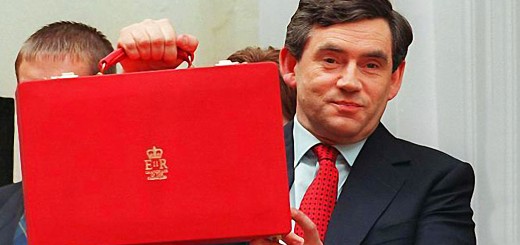Fractional Shares

Today’s post looks at the threatened HMRC clampdown on fractional shares in ISAs.
I don’t own any myself, but the logic behind fractional shares is pretty simple.
- They allow investors with not very much money (often younger investors, or those using monthly contribution plans) access to companies which trade at a high value per share by purchasing only a fraction of a share (say £10’s worth).
Some platforms have allowed investors to access fractional shares from within their ISAs, which HMRC says is not permitted.
- The tax office only recognises full shares for tax purposes and the Individual Savings Account Regulations 1998 specify that ‘shares’ are the qualifying investments for ISAs.
HMRC held a meeting with industry figures and Treasury officials at the start of this month. If HMRC decides to take action, then investors could owe capital gains tax and/or income tax in dividends.
- The platforms might also be pursued for the money HMRC decides it is owed, or they could face fines.
The tax office said:
It is HMRC’s view that ‘shares’ as referred to in those regulations, relates only to whole shares and not parts thereof, therefore fractional shares cannot be held in an Isa. When an ISA manager allows investment in non-qualifying assets, we would seek to recover any tax loss from the ISA manager rather than the investor where possible.
Chancellor Jeremy Hunt is reportedly considering changes to the ISA regime in next month’s Autumn Statement, and the Treasury said:
We want the Isa market to work for both the industry and consumers and are working on a range of options.
Which stocks?
The stocks in question are often US stocks
- Firms like Berkshire Hathaway and Alphabet used to trade for thousands of dollars per share, but B shares and share splits have fixed the problem for some of them.
But Amazon is $132, Mastercard is $380, Apple is $189, Teslas is $256 and McDonalds is $291. Nvidia still trades at £355 per share and Chipotle is at more than $2,000.
- Some UK ETFs also have high prices, and many robo-advisers (including InvestEngine) use fractional ETFs in their products, but HMRC doesn’t seem as interested in this.
Fractional shares solve the problem by a trustee owning the aggregate total of shares on a platform, whilst economic rights are parcelled out to individual investors.
- The only limitation is that factional shares can’t be used for in-specie transfers to other providers – the fraction needs to be converted to cash first.
Which platforms?
“Free” share-dealing platforms like Freetrade and Trading 212 offer fractional shares in ISAs, whilst their larger rivals Hargeaves Landowne and AJ Bell don’t offer them at all.
- Freetrade only offers fractional US stocks, but Trading 212 allows fractional UK shares as well.
Freetrade has 80K ISAs which hold £650M of assets, but they say that less than 50% of these accounts include some fractional shares.
Dan Moczulski, UK MD of eToro (which doesn’t allow fractionals in ISAs, only in GIAs) said:
With Apple being priced around $180, somebody who wants to allocate $500 is forced either to buy $360 worth of shares or $540.
Fractional shares lower the bar to entry for retail investors, helping those who have less money to invest achieve diversification. On eToro, you can start at $10.
A Freetrade spokesman said:
Fractional shares make investing more accessible for savers while offering them the same benefits and material protections that they receive when investing inwhole shares. Like many other participants in the market, we are of the view that the current Isa rules do not prohibit fractional shares from being held in an Isa.
We have engaged with the Government on this and welcome an open dialogue with HMRC and we hope that a sensible conclusion can be reached that benefits all savers. We will continue to offer fractional shares until this matter is resolved and, should it be required, we will stand behind our customers and ensure that they are at no financial disadvantage.
CEO Adam Dodds added:
We’re deeply disappointed with HMRC’s position which appears to be based on a misunderstanding of how brokers like us offer fractional shares.
Our fractional shares give retail customers ownership of a portion of an actual company share. They are not a derivative contract. The protections and benefits for retail investors are effectively the same as for whole shares.
Despite this reassurance, other platforms disagree with Freeserve and have taken the opportunity to bash their rivals. Tom Selby of AJ Bell said:
Our understanding is that existing legislation prevents Isa investors holding fractional shares. While there is an argument for amending these rules, as things stand anyone holding fractional shares within their Isa is at risk of being hit with a penalty from HMRC.
Any firm marketing fractional shares within Isas without warning investors of the possible consequences has created a potentially sticky situation and customers will inevitably be demanding clarity on who will fund any tax bill that comes their way.
The Investing and Savings Alliance (Tisa) would like to see reform. DirectorLisa Laybourn said:
We don’t think it would be helpful for HMRC to take a backward-looking stance because it could damage the reputation of the ISA.
This has the potential to create two tiers of investors — those who have enough money to create a globally diversified portfolio, and those for whom the door is locked because they don’t have enough money, and we don’t think this is fair.
Paternalism
in his CityWire column, David Stevenson ruled out a conspiracy to force UK investors into British shares.
I believe the cause stems from a simpler impulse: to toughen up the rules applying to private investors. There is already a default assumption at the FCA that there needs to be a paternalistic steer on investing, that private investors are vulnerable and need constant protection. I am no fan of crypto-currencies, but I struggle to understand why we still don’t have any London-listed trackers for these markets.
The regulators would all be much happier if we simple private investors were corralled into mainstream funds run by established asset managers the regulators can carefully manage and supervise. The general regulatory position is it would be much better if we all used less risky structures like funds rather than individual shares.
I agree with David – sophisticated investors suffer in the name of protecting naive individuals who in practice are not very interested in investing.
- The net effect is to preserve fat income streams for a lazy and over-rewarded industry.
Are HMRC wrong?
Dan Niedle on Tax Policy Associates says that HMRC is probably wrong about fractional shares.
HMRC believes that fractional share ownership shouldn’t be permitted. We would speculate this is influenced by a statement from ESMA [the European Securities and Markets Authority] earlier this year, which said most fractional share ownership is via derivatives – this is not accurate in relation to the UK market.
In the UK, fractional shares are just a refinement of the usual practice for subdividing the pooled nominee account in the name of the platform.
HMRC are wrong, for the simple reason that all shares held in an ISA are fractional interests.
Regular (non-fractional) investors in effect own a small fraction of each share held in the nominee account.
A second basis for the HMRC position would be the (lack of) in-specie transfers, but:
It’s fairly common right now with ISA transfers that“awkward” securities can’t be transferred, and have to be sold, with the cash proceeds moved with the account to the new provider. It’s the same with fractional interests in shares.
Plenty of providers don’t offer in specie transfers at all, and it’s not a requirement ofthe ISA Regulations that they do.
A third argument would be (lack of) voting rights from fractional shares, and Dan admits that this could be an issue.
We don’t see a public interest in HMRC pursuing this point. We hope that they agree that the better view is that fractional shares are permitted by the existing ISA rules.
Conclusions
I have no dog in this fight, but it seems a strange row to have blown up from nothing.
- The best way forward would be to remove ambiguity by allowing fractional shares (and ETFs) in all accounts.
Let individual investors take responsibility for how they use them.
- Until next time.


















